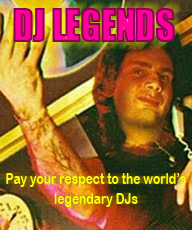The BPM Conspiracy
The BPM Conspiracy Posted on: 12.05.2012 by Kasi Marget Hi everyone,As i'm starting to produce my own music, I'm facing the process, and I've been believeing a lot recently about one factor that you have to take into account when producing a track. The BPM. We all have here a musical background, obviously, and we know that regarding dance music, a genre has it's tempo, or at least a tempo range we can expect the track to be in. House 124-128 Electro 127-130 Drum and Bass 170-180 Dubstep 140 And so on. When I discovered EDM (may I use the-word-we-shall-not-use ?) something like 8 or 9 years ago (I was 11-12),I was more into electro house and stuff, which has a BPM that varies from track to track. I didn't resist the rise of dubstep/brostep (Shambala 2009 got me hooked) and I couldn't help but to notice that most of the tracks are 140. Just, yeah 140, not even a .1 somewhere or anything. That didn't bother me at all, but I stumbled upon some posts here that were making fun of that fact, because no beatmatching was required to DJ that genre. Now that we've introduced the "conspiracy", let's get to the point. Because I might have a issue finding the right words to illustrate my idea (I lack vocabulary), i'll take an example. Most of electro-house is 128 BPM I. Let's say I'm playing a track at 128, and I plan to pick another one, same genre, and mix it in. I decide to pick a track, which appears to be at 127 bpm. I will beatmatch it to be 128 bpm, of course. Now you should see where i'm going. Our music, "dance music" for the most part, is meant to be played in a club, and therefore by a DJ. For convenience and pleasure of eveyone, it will be beatmatched, meaning if we state that the usual bpm of electro is 128 (50% of the time it's spot on), it's likely that the set will be at 128 (if we ignore genre changes etc.) Therefore, every track picked by the DJ that is not stricly 128 will be beatmatched to it. Here we are. I'm not against tracks that are not 126 for house, 128 for electro, 140 for dubstep. At all. I'm just wondering why someone would create a track that is not the same bpm as the "standard". One answer you might give me is that it's a way to give a certain feeling, groove and identity to the track. To create a "mood". First, I'd say that a 1-2% variation is unperceptible. But let's admit it is : this choice of making something "different" is useless if the track is being beatmatched to the "common bpm" of the genre. Why isn't a bpm defined per genre, 128, 140, 175 then ? It would make things easier for DJs, and won't change anything in what's going out of the speakers. What's your opinion on that ? Do you produce tracks that are sometimes not the "common BPM" for the genre, even if the difference is small (1 or 2 bpm) ? Why did you make that choice ? | |
| Tera Baragan 19.05.2012 |
Originally Posted by Eric Day
|
| Kasi Marget 17.05.2012 |
Originally Posted by kooper1980
|
| Kristofer Krauel 16.05.2012 |
Originally Posted by lethal_pizzle
|
| Iluminada Gallelli 14.05.2012 |
Originally Posted by JasonBay
|
| Georgina Schatzman 14.05.2012 |
Originally Posted by Eric Day
Why would you do this though? If you're already creating a groove at a certain BPM, let it ride! |
| Neva Sparacino 20.05.2012 | beatmatch its a dying art I love to beatmatch on vynil but Live FX its the future homes |
| Ulysses Vittetoe 20.05.2012 | There's lots of ways to bring a song into a set without beatmatching it to the one previously playing. The ones that have a varied bpm than normal for their genre, I'll use non-beatmatching techniques to bring them in. This way you don't have to completely kill the feel of track in its original form. Only problem is mixing out of it as well... |
| Tera Baragan 19.05.2012 |
Originally Posted by Eric Day
|
| Marshall Aby 17.05.2012 | OK then; speaking as a producer and not a DJ. I set the BPM at the tempo at which my track sounds best. Done. On a more general note. There are no standards, and there never will be. Music is constantly evolving and it's the creep between existing genres and new ones that keep it fresh. 80% of Electro House might be 128bpm at the moment, doesn't mean it'll still be at that BPM in a couple of years. Even D&B's mean tempo has shifted at various times over it's long and in-glamorous history and I'd expect the same to happen to Dubstep (which is probably the closest a genre has to having a 'common bpm'). Of course, quite a lot of the older Dubstep stuff was 130-135bpm anyway. Oh, and you've got the faster Jtek 150bpm dubstep stuff. And the 100bpm stuff too. Producers just push boundaries or just do their own thing. Enough people do it, it catches on, you've got a new 'thing', probably Moombah-wotsit. |
| Kasi Marget 17.05.2012 |
Originally Posted by kooper1980
|
| Kristofer Krauel 16.05.2012 |
Originally Posted by lethal_pizzle
|
| Rochel Gleese 16.05.2012 | Not everyone is producing in the computer, analog drum machines, modulars and sequencers all have either unstable timing or timing that's not exactly on the beat |
| Marshall Aby 15.05.2012 | Not sure about you, but the house I play varies from 115-128 bpm. I don't stick to one particular BPM whilst playing them either, but I'm always regressing towards 0% on the pitch fader because 0% is typically where the tune sounds best. For two reasons: - the producer has picked the BPM where they believe the groove sounds the best - songs radically slowed down or sped up don't sound as good using pitch lock So my set will typically go up and down in BPM as it goes along. If it's exactly the same all the time it can feel a bit metronomical tbh |
| Kasi Marget 15.05.2012 | Eric : I don't believe you got what I meant, but nevermind.. that's not super clear after all. I'm talking about the production side of thing, why would someone create a track at 139.5 when he knows that it will be adjusted to 140 anyway during a mix ? |
| Iluminada Gallelli 14.05.2012 |
Originally Posted by JasonBay
|
| Georgina Schatzman 14.05.2012 |
Originally Posted by Eric Day
Why would you do this though? If you're already creating a groove at a certain BPM, let it ride! |
| Iluminada Gallelli 14.05.2012 |
Originally Posted by dope
By the time the incoming track is all the way in, its at it's native bpm. If done correctly, its not noticeable enough to the listener to be a distraction, especially if its only a couple bpm. |
| Georgina Schatzman 13.05.2012 |
Originally Posted by pier
|
| Twanda Reimche 13.05.2012 | There are House tracks at 135 BPM and techno tracks at 120 BPM... Do what feels ok. If a groove needs to go slower or faster then do it. There are no standards. |
| Nedra Fresneda 13.05.2012 |
Originally Posted by seitz
Music is an artform. Why should we stick to what everyone else is doing just for the sake of compatibly? Taking it to an exaggerated point of view, it's like expecting everyone to write in scales compatible to X for the sake of harmonic mixing. |
| Tessie Grether 13.05.2012 | Why the push for everything to be the same? Life without variation is BORING. |
| Kasi Marget 13.05.2012 | I know that choosing a certain bpm over another is because it sounds better (depending on what do you want to create). But your electro tracks that are 130+ bpm, do you play them at their original bpm ? What if the track you want to mix them into is 128 ? |
| Iluminada Gallelli 13.05.2012 | From my perspective, when I'm creating an original track, making it a specific bpm to help DJ's (me included) beat match easier is the last thing on my mind. I have a couple "electro" tracks that are 130+, because the song just sounds better at that tempo for whatever reason. With the abilities of the software out nowadays, it seems less of a concern to me I guess. I just made a mashup using the 'Bigger than Hip-Hop' acapella (95?) to Ghosts n' Stuff (128) without much effort. The mashup is at 105, and sounds good at that bpm. Making it at a certain bpm wasn't even a thought in my mind. I just made it how I thought it sounded the best. My 2 cents. -Eric |
| Maricruz Mouw 13.05.2012 | 1 or 2% variation in bpm is VERY perceptible....ever listen to a track with bpm changes and youll pick up on it fast |
| Tonisha Rayman 12.05.2012 | Correct me if I'm wrong but I'd assume that they would change the bpm for a certain song in the genre to get a slightly different sound but still be in the range of what would make that track in the style they want. |
<< Back to Producer tips and DAW informationReply



